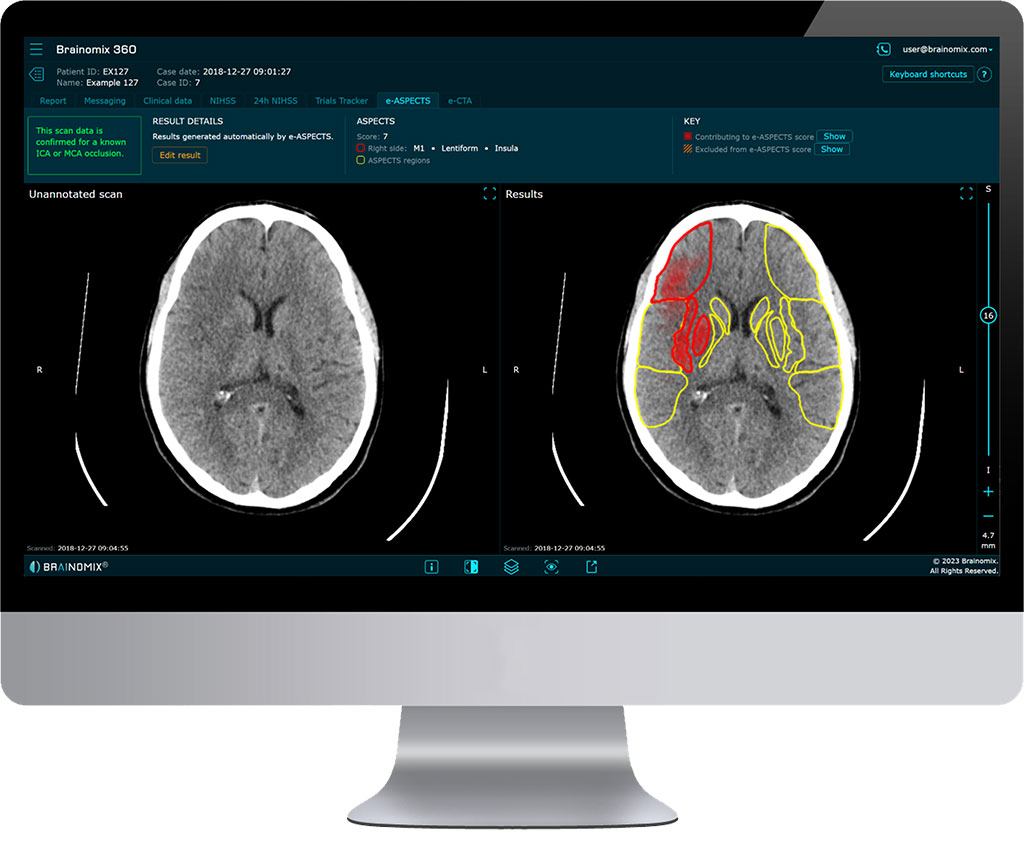Cutting-Edge Stroke AI Imaging Platform Provides Real-Time Interpretation of Brain Scans
Posted on 22 Mar 2023
About 80% of stroke patients who leave the hospital are affected by disabilities. Amongst the most severe and debilitating strokes are those caused by a large vessel occlusion (LVO). The current standard of care for treating LVO strokes involves administering thrombolysis, which is a clot-busting drug known as alteplase. However, a significant challenge is identifying patients who require treatment due to the lack of real-time neuroradiology imaging expertise in locations where stroke patients are admitted, combined with communication barriers across stroke networks. A cutting-edge stroke artificial intelligence (AI) imaging platform supports doctors by providing real-time interpretation of brain scans. This can help in making treatment and transfer decisions for stroke patients, ensuring they receive treatment at the right time and in the appropriate location.
Brainomix’s (Oxford, UK) 360 e-ASPECTS tool evaluates non-contrast CT scans, generating an ASPECTS score and providing visual assistance to clinicians through a unique overlaid heatmap. The ASPECTS quantitative scoring system measures the extent of early ischemic changes and is widely cited as a key criterion for selecting endovascular treatments in all major stroke guidelines. Recently published clinical trials have further underscored the importance of ASPECTS in determining the most suitable treatment for an expanded group of eligible stroke patients.

According to recent studies, the integration of Brainomix software significantly improves stroke treatment outcomes by reducing door-in-door-out times by over an hour, resulting in faster treatment. Additionally, Brainomix triples the number of stroke patients who achieve functional independence, while also increasing rates of thrombolysis and thrombectomy by more than 50%. With deployments across more than 30 countries, Brainomix's AI stroke software, which has been studied and validated in over 60 publications, is now poised to arrive in US stroke centers. The Brainomix 360 e-ASPECTS tool for stroke has received FDA clearance, enabling the deployment of the cutting-edge stroke AI imaging platform across US stroke centers.
"We are delighted to have the opportunity to now take our technology to the US, where more than 800,000 patients suffer a stroke each year," said Dr Michalis Papadakis, CEO and Co-Founder of Brainomix. "Our e-ASPECTS tool has been shown, in multiple countries and healthcare systems, to improve physicians' interpretations of ASPECTS scores on non-contrast CT scans – which carries particular clinical value for primary stroke centers, where there may not be around-the-clock specialist expertise, but where most stroke patients are first admitted. Our technology supports these physicians who are making time-sensitive, critical decisions around transfer and treatment, strengthening networks and facilitating an improved stroke service."
Related Links:
Brainomix













